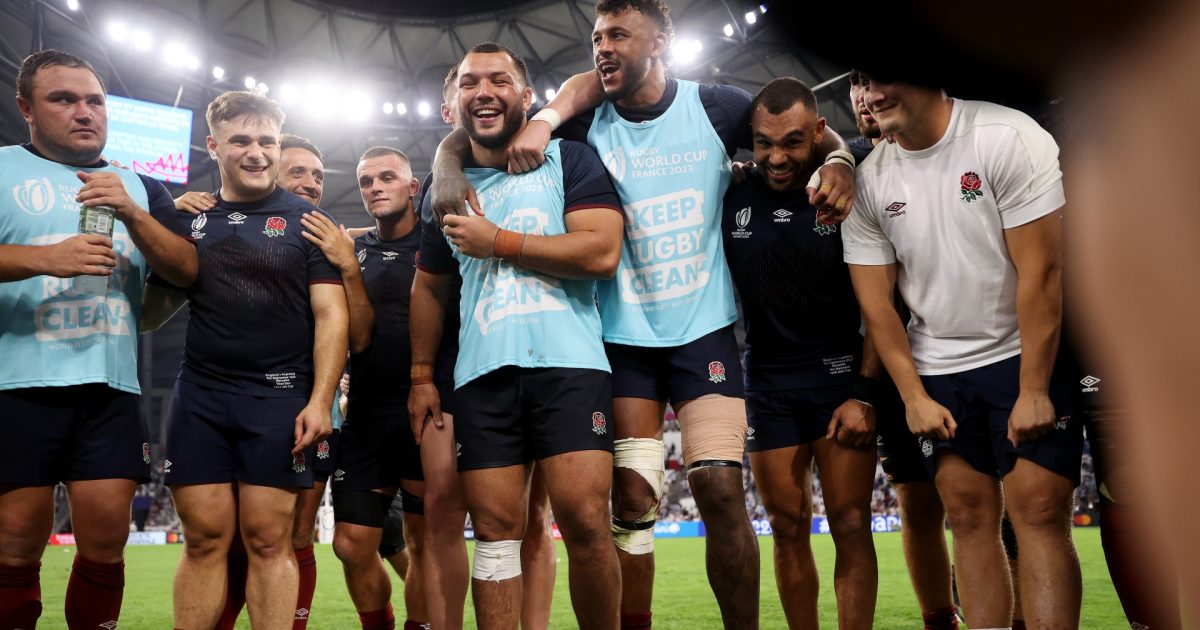The very good reason why England won’t copy Boks’ traffic lights

South Africa insisted last Sunday that their use of a traffic lights system from the coach’s box in Marseille was purely to do with medical assessment of the players and nothing to do with making tactical adjustments.
Some people have their doubts, suggesting that what unfolded in the Springboks’ 18-3 Rugby World Cup win over Scotland had everything to do with tactics, such as kicking to the corner and not at the posts and vice-versa.
England played at the same ground the previous evening, but they relied on regular comms for messaging during their 27-10 win over Argentina.
What did assistant coach Kevin Sinfield make of what the Springboks did and is it something that England might ever consider to further control what unfolds on the pitch?
“When they cross the line you have got to put some trust in them, put some belief in them,” reckoned Sinfield. “It has happened for years now where the likes of myself are carrying water and kicking tees and also messages on.
WATCH OUT WORLD: George Ford seemingly isn't the only one ready to kick drop goals for England. #EnglandRugby #RWC2023 #ENGvJPN pic.twitter.com/MfGCbRZa5L
— RugbyPass (@RugbyPass) September 13, 2023
“If South Africa think the traffic lights are the best way to go, so be it. We will just get on with what we are trying to do and control what we can control. I understand why there is some noise around it but we’re not that bothered to be honest.”
Analytics, though, are increasingly important in rugby. What does Sinfield make of their usefulness during a game? “The numbers aren’t out there (playing), are they?
“The numbers don’t have feel, the numbers don’t have emotion, don’t have passion, they don’t understand particularly the relationship between a captain and a referee, so there are lots of bits as well that are important for us to take into account.
“Analytics are important – and they certainly are after the game when you’re trying to analyse and understand why certain things have happened. But I’d like to think as a coaching group we put trust in our playing group and we back them to make decisions.
“We understand that they will get things wrong from time to time but we like to think between us there are enough conversations and discussions between us throughout the week where we talk through different permutations and then we try and learn from them as well because they don’t always happen every single week.”

























